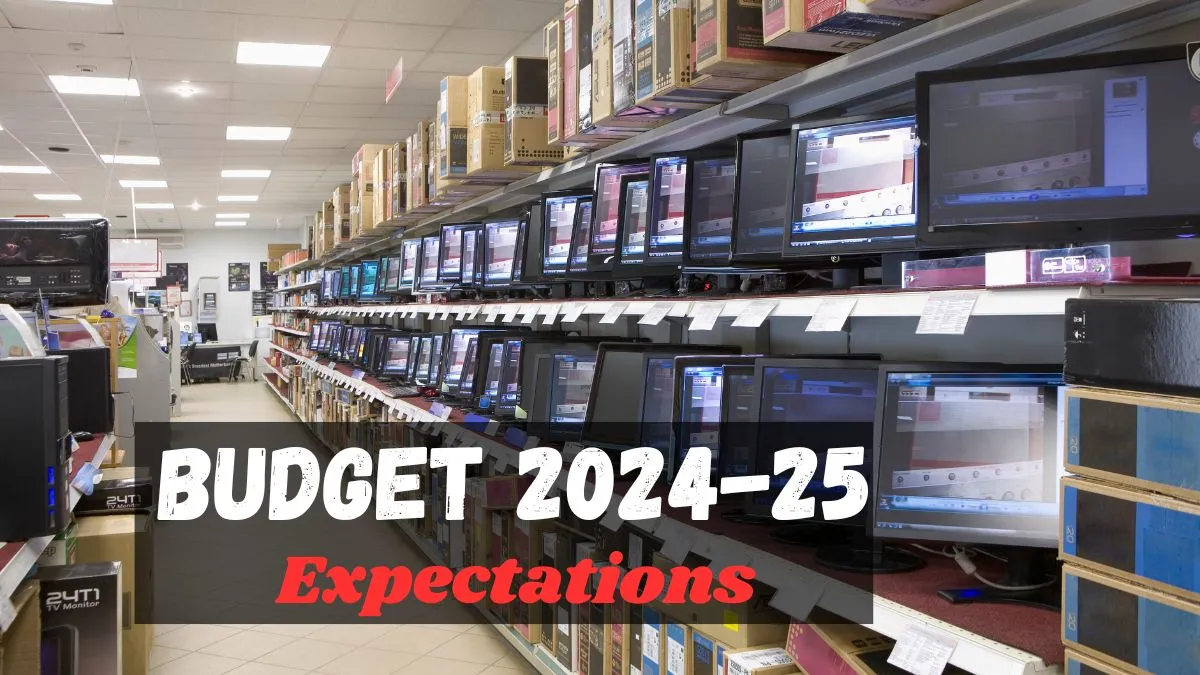- By Aditya Pratap Singh
- Mon, 15 Jul 2024 06:14 PM (IST)
- Source:JND
Budget Expectations: Union Finance Minister Nirmala Sitharaman is scheduled to present the Budget for the financial year 2024-25 in Lok Sabha on July 23. Pre-budget forecasts are pouring in from various sectors, each outlining their demands for this highly anticipated budget. The budget is expected to be special as it will set the financial tone for the next five years for Modi 3.0.
Meanwhile, Industry experts from consumer electronics sectors have expressed their expectations and demands from the budget 2024-25.
Also Read: Stock Market: Sensex, Nifty Close At New Record Highs On Monday
Imran Kagalwala, Co-Founder at UNIX India, said, "In the upcoming Union Budget, consumer electronics manufacturers in India are looking forward to strategic initiatives aimed at fostering innovation and enhancing research & development (R&D) capabilities. While the government has made significant strides in supporting Indian manufacturers through initiatives like the 'Made in India' campaign and the PLI scheme, there is a pressing need to level the competitive playing field. Anticipations include measures such as antidumping duties to ensure fair competition against Chinese and other international companies in the industry.
"Localization of components and raw materials is also critical to reducing dependency on imports and strengthening domestic manufacturing capabilities. Policy reforms and investments in skill development are expected to prepare the workforce for future challenges and opportunities in the global market. Additionally, there is eager anticipation for measures aimed at promoting exports, which could elevate India's stature as a significant player in the international consumer electronics sector," he added.
Ashok Rajpal, Managing Director Of Ambrane India demands continuous support under the PLI scheme.
"For the Union Budget 2024-25, there is a strong sense of optimism within the electronics industry. The Government’s Production-Linked Incentive (PLI) schemes have already demonstrated their potential, driving remarkable growth, attracting investments, and enhancing our manufacturing capabilities. We anticipate continued support in the upcoming budget. To elevate our industry to global standards, it is imperative to enhance support for exporting 'Made in India' products. As the budget approaches, we look forward to policies that reinforce domestic manufacturing, foster innovation, and enhance our global competitiveness. Sustained backing for the 'Make in India' initiative remains crucial to our trajectory," said Ashok Rajpal -Managing Director - Ambrane India.
"Critical investments in infrastructure and technology will be pivotal for the growth of the electronics manufacturing sector. Tax incentives and streamlined regulatory processes are essential for sustaining sectoral health. Emphasizing self-reliance in advanced technologies will further bolster local manufacturing efforts. We await the budget with optimism, expecting policies that strengthen our foundation for growth, innovation, and sustainable practices in electronics manufacturing," he added.
Avneet Singh Marwah, CEO of Super Plastronics Pvt Ltd demands reducing of GST rates on electronic goods.
"To help boost the economy and tackle rising inflation, the government needs to focus on strategies that encourage spending and investment. Simplifying GST rules, investing in job training, and changing tax brackets for consumers are essential steps. Keeping the 15% corporate tax rate for new manufacturing ventures would attract both local and international businesses to set up shop in India. Additionally, expanding the Production-Linked Incentive (PLI) scheme in the electronics sector can help Indian manufacturers grow," said Avneet
"One expected move is reducing the GST rate on LED TVs larger than 32 inches from 28% to 18%. This change aims to boost consumer spending in the electronics sector. Expanding PLI schemes to include smart TVs, refrigerators, and washing machines is also important for market growth and improving manufacturing capabilities," he added.


